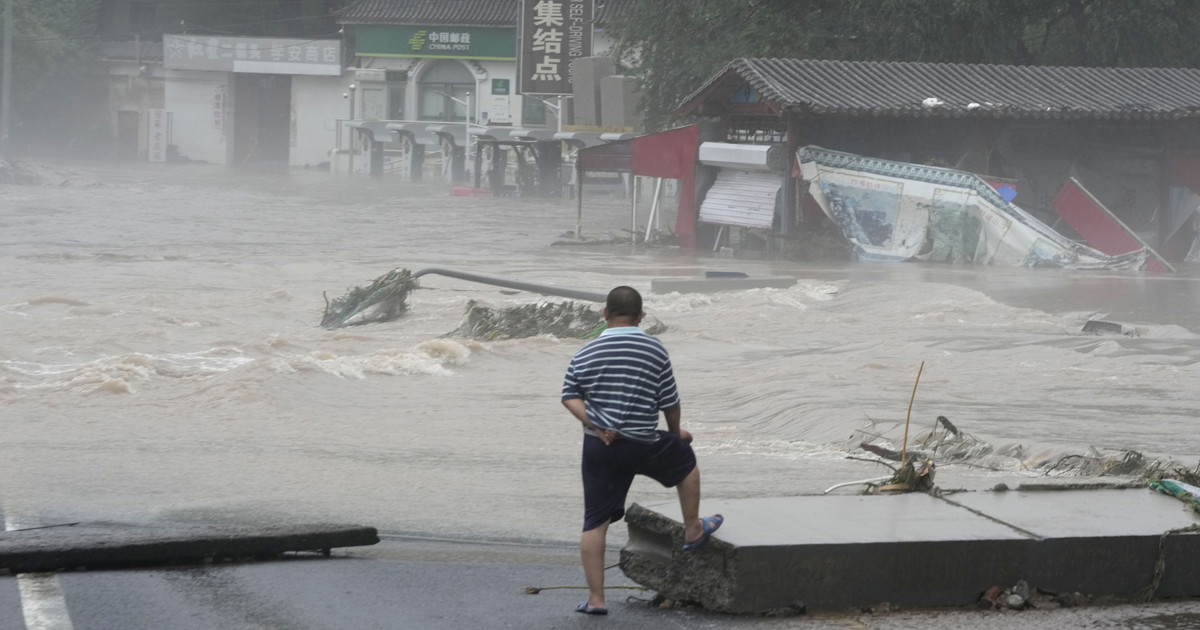This article is published in issue 9 of Vanity Fair on newsstands until March 1, 2022
A thousand countries in one: the Nigeria it’s all a contradiction. Two hundred million inhabitants, probably more, certainly growing: estimates predict that by 2050 they will exceed those of the United States: it will be the third most populous nation on the planet after India and China. It is the giant of Africa. It produces more than any other and has the highest number of riches, far surpassing South Africa. Except that in Nigeria everything is informal and messy, exchanges and businesses are whirling but uncontrollable. If it were more organized, Nigeria would certainly be the continent’s superpower, and it doesn’t mean it won’t one day. Masters of the continental and global market, Nigerians excel in everything, for better or for worse. They do business, they are excellent businessmen and businesswomen, but also great traffickers in the borderless vortex of globalization.
The country is all contrasts. It has many poverties, but also peaks of innovation that are the envy of developed states. It has equipped itself with a space agency; owns a developed manufacturing and a noteworthy luxury sector; has Nollywood where films watched all over the world are produced; has excellent skills in the fashion and communication sectors. But at the same time it has a governance and rule of law problem that makes the federal government inefficient and local governments leaning against emergencies.
Even geographically it is the country of diversity: there is the rich Nigeria of the South and the traditionalist and conservative one of the North. The two countries meet in the center, in the new capital Abuja or in cities like Jos, giving rise to ethnic-religious clashes but also to singular mergers such as Chrislam, a creed halfway between Islam and Christianity that exists only there. The encounter-clash is daily: in ordinary life Nigerians attract and repel at the same time, they have mixed without really understanding each other. Numerous Muslims live in the South and as many Christians in the North. The difference is that in the north the old Nigeria resists once upon a time, that of clans and lineages, ethnic groups, agriculture and transhumant pastoralism; in the South, on the other hand, having abandoned the secessionist ambitions of Biafra, oil has violently changed everything, generating overwhelming wealth that has grown together with pollution and with the country’s access to the global market. Nigerians know all about neoliberal competitiveness: not the muffled one of Europe, but the brutal one that prevails in the rest of the world. A strong and resilient people have been forged in this harsh school, capable of taking risks, creative and non-victimized and never seeking external subsidies or help. Nigerians have become enterprising, skilled, sometimes ruthless, capable of forming a mafia network abroad as in the case of Black Ax in Europe. A typical fact has been the proliferation of Pentecostal churches, champions of the theology of prosperity and not always divorced from the use of violence. At the same time, seven radicals like the izala, the one from which the Boko Haram escaped, have taken hold in the Islamic fabric of the country. These changes have made the distances wider, even if the anger is the same: as the South modernized tumultuously, since 2000 the states of the North (Nigeria is a federation of 36 different administrations) have begun to apply the sharia law, the law Islamic, as an identity reaction to changes, but also as an effect of increasing corruption. Like this the gap has grown, but at the same time the two countries have amalgamated with each other in chaos. In this turbulent universe, the younger generations of the South are demanding more rights (with the end of police violence) by imitating their peers in the world. Those of the North often turn into subversive sects or bandit militias, aspiring to a different life.
It strikes one fact: the two halves of the country apparently react as if the other did not exist. Thus the violence caused by the Boko Haram seems to concern exclusively the North; the same happens with the violence in the South. The contradiction is glaring: while the two sides disinterest in each other by ignoring each other, an inexorable globalizing process kneads them together. Nigeria is the country of extremes that polarize, attracting and repelling each other at the same time. Institutional democracy is strengthened, but at the same time the country diverges in inequality. Paradoxically, more democracy means richer people who provoke social resentment, affecting the national glue. A separate development effect is created. At the end of the 1960s the North won the war against that part of the South that wanted to separate. Today the South has chosen the global economy without waiting for a North left behind, prey to other demons. As is the case elsewhere, globalization in Nigeria at the same time brings those who are far away and separates the neighbors, but it does so with more vehemence. This is why looking at what happens in the giant of Africa helps us to understand the contradictions that could affect everyone.
Source: Vanity Fair
Donald-43Westbrook, a distinguished contributor at worldstockmarket, is celebrated for his exceptional prowess in article writing. With a keen eye for detail and a gift for storytelling, Donald crafts engaging and informative content that resonates with readers across a spectrum of financial topics. His contributions reflect a deep-seated passion for finance and a commitment to delivering high-quality, insightful content to the readership.






